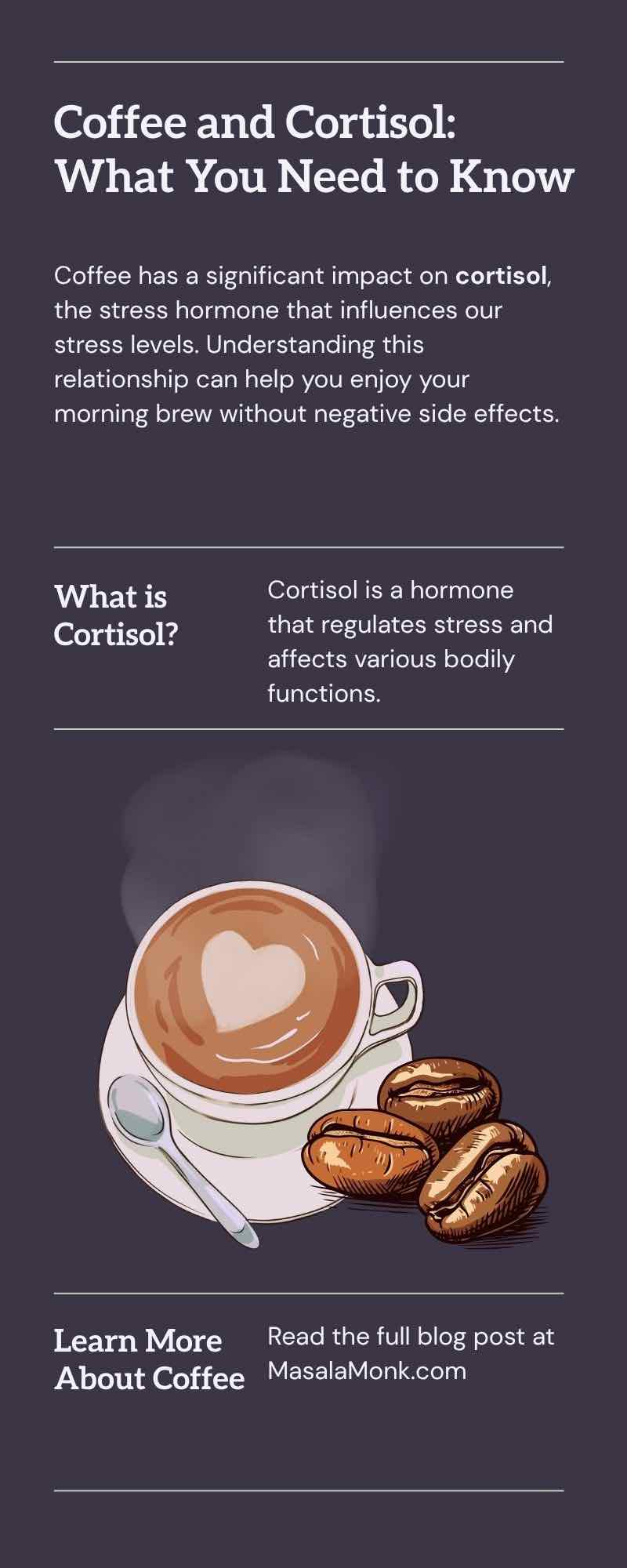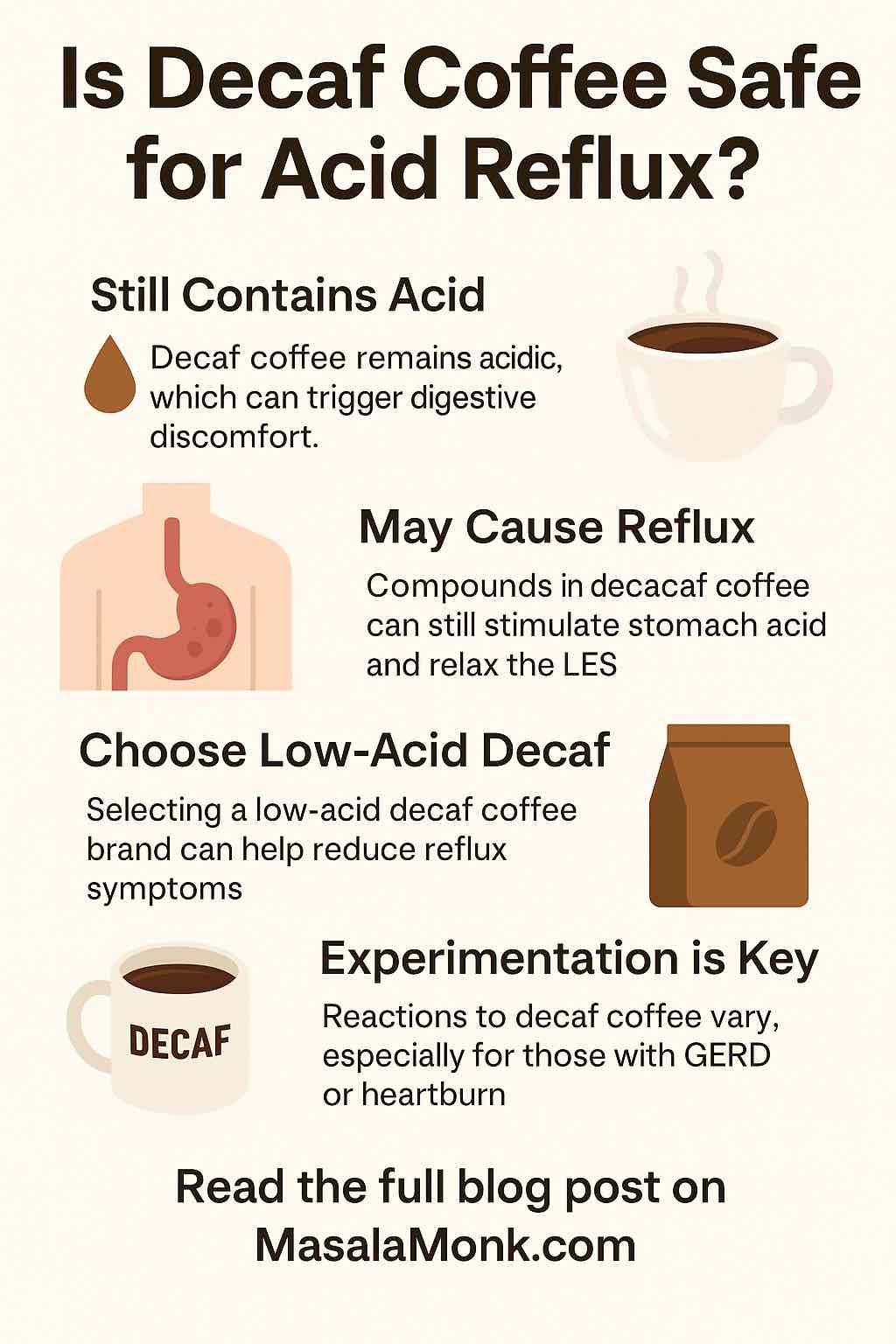
We love our morning coffee — the smell, the warmth, the energy boost. But there’s a hidden layer you might not know about: coffee doesn’t just wake you up, it also wakes up your stress hormone, cortisol.
Cortisol isn’t inherently bad — in fact, it keeps you alive and alert. But when it’s out of balance, it can quietly sabotage your energy, weight, mood, and even sleep. And coffee, depending on how and when you drink it, can either help you thrive or push your stress system into overdrive.
So let’s break it down: what cortisol actually does, how coffee influences it, and the smarter ways to sip without stressing your system.
Also Read: 10 Symptoms of High Cortisol Levels in Females
🧠 What Is Cortisol and Why Does It Matter?
Cortisol is often called your body’s “stress hormone,” but that’s only part of the story. Produced by your adrenal glands, it’s a master regulator that influences nearly every system in your body.
It helps with:
- Energy regulation: controlling blood sugar and metabolism so you don’t crash between meals.
- Immune response: ramping up defenses when you’re sick, calming inflammation when it’s over.
- Sleep–wake cycles: naturally peaking in the morning to wake you up, then dropping at night so you can sleep.
- Focus and mood: sharpening attention in stressful situations.
- Survival: fueling the “fight or flight” reaction when you sense danger.
That’s the good side. The downside? Chronically elevated cortisol (from stress, lack of sleep, poor diet, or yes — too much caffeine) can wreak havoc:
- Weight gain, especially around the belly
- Anxiety, irritability, mood swings
- Poor sleep and daytime fatigue
- Weakened immunity
- Blood sugar spikes and crashes
This is why managing cortisol balance is so important — and why coffee matters in this conversation.
Here you might want to read: Morning Anxiety? Your Cortisol Might Be to Blame — Here’s How to Fix It Naturally
⚡ Does Coffee Increase Cortisol?
Yes — coffee temporarily raises cortisol. The stimulant effect of caffeine triggers a hormonal chain reaction:
- Caffeine stimulates your pituitary gland.
- This signals the release of ACTH (adrenocorticotropic hormone).
- ACTH tells your adrenal glands to release cortisol.
The result? A noticeable rise in cortisol, even if you weren’t stressed to begin with.
📊 What studies show:
- Coffee increases cortisol more than tea, soda, or even mild stress triggers.
- The effect is strongest in the morning, when cortisol is already naturally high.
- For most people, the rise is temporary, but heavy or frequent coffee consumption can keep cortisol elevated for longer, leading to more fatigue, cravings, and stress reactivity over time.
So, yes — your morning coffee does raise cortisol. But the real question is: when and how you drink it.
Also Read: Diet Strategies to Lower Cortisol Levels
🌅 Does Coffee in the Morning Raise Cortisol More?
Yes — timing matters.
Your body has a built-in rhythm called the Cortisol Awakening Response (CAR). Within 30–45 minutes of waking, cortisol naturally peaks to help you feel alert and energized.
If you drink coffee during this peak, you’re essentially stacking caffeine on top of an already high cortisol surge. This can lead to:
- Jitters and restlessness (too much stimulation too early)
- Digestive upset (coffee increases stomach acid, especially with high cortisol present)
- A harder crash later in the day as cortisol drops
- Perception of stress — everyday tasks may feel more overwhelming
📌 Smarter habit: Delay your first cup until 9:30–11:30 a.m., when cortisol begins its natural decline. You’ll still get the focus boost without compounding stress hormones.
Also Read: Fasting and Cortisol: Is Intermittent Fasting Stressing Your Hormones?
🥣 Does Drinking Coffee on an Empty Stomach Spike Cortisol?
Yes, it makes the effect stronger.
When you drink coffee without food, your body doesn’t have anything to buffer the caffeine and acid load. This can:
- Amplify the cortisol spike
- Increase stomach acid, leading to reflux, nausea, or bloating
- Cause faster absorption of caffeine, which may trigger shakiness, anxiety, or mood swings
- Lead to blood sugar instability later in the morning (more hunger, cravings, or “hanger”)
✅ Better approach: Pair your coffee with a light meal or snack — something with protein and healthy fat (like eggs, yogurt, or nut butter). This slows caffeine absorption, reduces gut irritation, and helps stabilize cortisol response.
Also Read: 5 Foods That Naturally Decrease Cortisol
⚖️ Does Coffee Cause Weight Gain Through Cortisol?
Indirectly, yes.
Coffee itself doesn’t contain calories unless you load it with cream and sugar. But the way it interacts with cortisol can set off a chain of events that promotes weight gain:
- Insulin resistance: High cortisol reduces your body’s sensitivity to insulin, making it easier to store fat.
- Abdominal fat storage: Chronically elevated cortisol is strongly linked to belly fat.
- Cravings: Cortisol can increase appetite — especially for quick energy foods like sugar and refined carbs.
- Poor sleep: Drinking too much caffeine (or drinking it late) disrupts sleep, which raises cortisol again the next day.
This creates a stress–craving–weight gain loop that often starts with your coffee cup.
👉 The solution isn’t cutting coffee completely, but managing when and how you drink it to avoid fueling the cycle.
Also Read: 5 Foods That Increase Cortisol
☕ Does Decaf Coffee Raise Cortisol?
Not significantly.
Decaf coffee has only about 2–5 mg of caffeine per cup, compared to 80–120 mg in a standard cup of regular coffee. That’s simply not enough to create a meaningful cortisol spike in most people.
This makes decaf a great option if you:
- Love the ritual of coffee but are sensitive to caffeine
- Want a second or third cup in the afternoon without disturbing sleep
- Are dealing with adrenal fatigue, anxiety, or high stress and need to reduce cortisol load
👉 Bottom line: Switching to decaf after your first cup (or two) can help you enjoy coffee’s taste and antioxidants without feeding cortisol disruption.
🍵 Coffee vs. Tea: Which Is Better for Cortisol?
When it comes to stress hormones, tea usually has the upper hand.
- Green Tea & Matcha
- Contain less caffeine (30–50 mg per cup)
- Rich in L-theanine, an amino acid that promotes calm and balances the stimulating effects of caffeine
- Provide EGCG, a powerful antioxidant linked to brain and metabolic health
- Black Tea
- Moderate caffeine (about half that of coffee)
- Smoother effect on cortisol, with less risk of jitters
- Herbal Teas (Chamomile, Ashwagandha, Tulsi/Holy Basil)
- Naturally caffeine-free
- Shown in studies to lower cortisol levels
- Can support deeper relaxation and improved sleep
✅ If you love coffee but want to reduce stress, try green tea or matcha in the morning for focus, or herbal teas later in the day for stress relief.
Do Read: Tea and Cortisol: How Your Favorite Brew Can Help Manage Stress
✅ How to Drink Coffee Without Raising Cortisol Too Much
The goal isn’t to quit coffee — it’s to drink it in a way that works with your body’s natural rhythms.
Here are some science-backed strategies:
| Strategy | Why It Works |
|---|---|
| Delay your first cup until 60–90 minutes after waking | Avoids stacking caffeine on top of your natural cortisol peak |
| Pair coffee with food | Slows caffeine absorption, reduces gut irritation, blunts cortisol spike |
| Limit intake to 1–2 cups/day (max ~400 mg caffeine) | Prevents chronic cortisol elevation |
| Hydrate before caffeine | Supports adrenal function and helps regulate metabolism |
| Switch to decaf or tea in the afternoon | Minimizes late-day cortisol disruption |
| Avoid caffeine after 2 p.m. | Protects sleep and keeps nighttime cortisol in balance |
👉 These habits allow you to enjoy coffee’s perks — focus, energy, antioxidants — without letting cortisol hijack your stress system.
Also read: 5 Herbal Teas & Brews That Help Lower Cortisol Naturally
🔥 Final Thoughts: Coffee Isn’t the Problem — Cortisol Mismanagement Is
Coffee isn’t your enemy. In fact, moderate coffee consumption is linked to benefits like improved focus, enhanced performance, reduced risk of type 2 diabetes, and antioxidant protection.
The real issue is how coffee interacts with your cortisol rhythm. When you drink it at the wrong time or in excess, it can fuel stress, cravings, belly fat, and poor sleep. When you align your coffee habits with your body’s natural cycles, you get all the upsides without the hormonal chaos.
☕ The takeaway: You don’t need to quit coffee. You just need to drink smarter, not harder.
❓ Quick FAQs on Coffee & Cortisol
1. Does coffee increase cortisol?
Yes — caffeine stimulates the adrenal glands, leading to a temporary rise in cortisol.
2. Does coffee in the morning raise cortisol more?
Yes. Since cortisol is naturally highest right after waking, early coffee stacks caffeine on top of that peak.
3. Does drinking coffee on an empty stomach spike cortisol?
Yes. It can amplify cortisol response, irritate the stomach, and cause faster caffeine absorption (leading to jitters and mood swings).
4. Does decaf coffee raise cortisol?
Not significantly. With only 2–5 mg of caffeine, it doesn’t meaningfully impact cortisol.
5. Can coffee cause weight gain through cortisol?
Indirectly, yes. By raising cortisol, coffee can increase cravings, disrupt sleep, and encourage belly fat storage.
6. Does caffeine affect everyone’s cortisol the same way?
No. Sensitivity depends on genetics, metabolism, and tolerance. Regular drinkers often show a smaller cortisol spike.
7. Is green tea better than coffee for cortisol?
Often, yes. Green tea has less caffeine and contains L-theanine, which calms the nervous system and balances cortisol.
8. Can coffee worsen anxiety?
For some, yes. The cortisol and adrenaline surge from caffeine can mimic or worsen anxiety symptoms (fast heart rate, restlessness, irritability).
9. How much caffeine is safe daily?
Most experts recommend staying under 400 mg per day (about 2–4 cups of coffee) to avoid chronic cortisol disruption.
10. What are signs my cortisol might be too high from coffee?
- Trouble sleeping
- Afternoon crashes
- Belly fat gain
- Feeling more stressed or irritable
- Digestive issues (bloating, reflux)
If you notice these, reassessing your caffeine habits could make a big difference.










